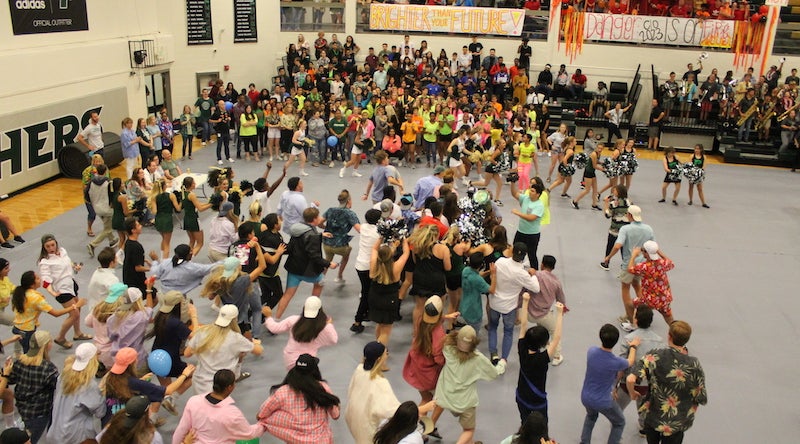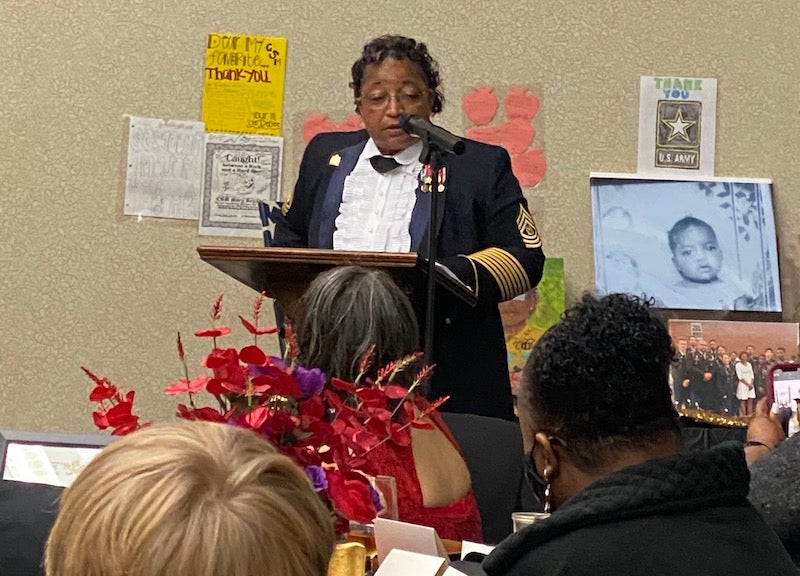PHS classes battle it out during spirit stick competition
Published 11:37 am Monday, September 9, 2019

- PHS Seniors storm the floor to celebrate their first spirit stick win of the year. (Contributed)
BY CONNIE NOLEN / Community Columnist
“You’re on fire,” I said to recently elected PHS freshman class president and creative writing student Hannah Kim. Kim approached asking about a pep rally errand causing me to notice the well-drawn flames on her lower legs continuing onto her white flame-enhanced t-shirt.
“Exactly,” said Kim. Inordinate preparations for class spirit stick competitions take hold early in high school. While the freshman class had artistry and flames on its side, the seniors emerged as spirit stick winners during Friday’s second pep rally of the year.
“Did you play a role in this senior comeback and spirit stick victory?” I asked PHS Senior Carmen Love.
“You know it,” Love said. “I read the group-me and followed instructions.”
While the seniors were excited for Friday’s win, 2019 marks the second consecutive year that juniors won the first pep rally’s spirit stick—even though seniors are extremely devoted to taking the first pep rally by storm. A senior group-me disseminates pep rally class colors and themes. Other classes have similar procedures; however, seniors have three years of coordination experience—so how did juniors win the first pep rally’s spirit stick for the second year running?
Approximately 20 percent of seniors leave by fifth or sixth period daily. Several leave only to return for after school practices. So many seniors gone by the day’s end leaves their class small and struggling to compete.
In December 2017, the National Education Policy Center (NEPC) published “Community Schools as an Effective School Improvement Strategy” listing expanded learning time and opportunities as one of four pillars of community school success.
While some students need early dismissal to work and assist with family expenses, students returning to campus for after school activities have little time to accomplish much before making their second daily drives to school. With fewer students on campus, the system saves funds by offering fewer elective sections. Unfortunately, this system savings comes at a price for seniors whose early dismissal costs them senior leadership, involvement, competitions, awards and scholarship opportunities that build students’ resumes creating opportunities to win even more scholarships.








